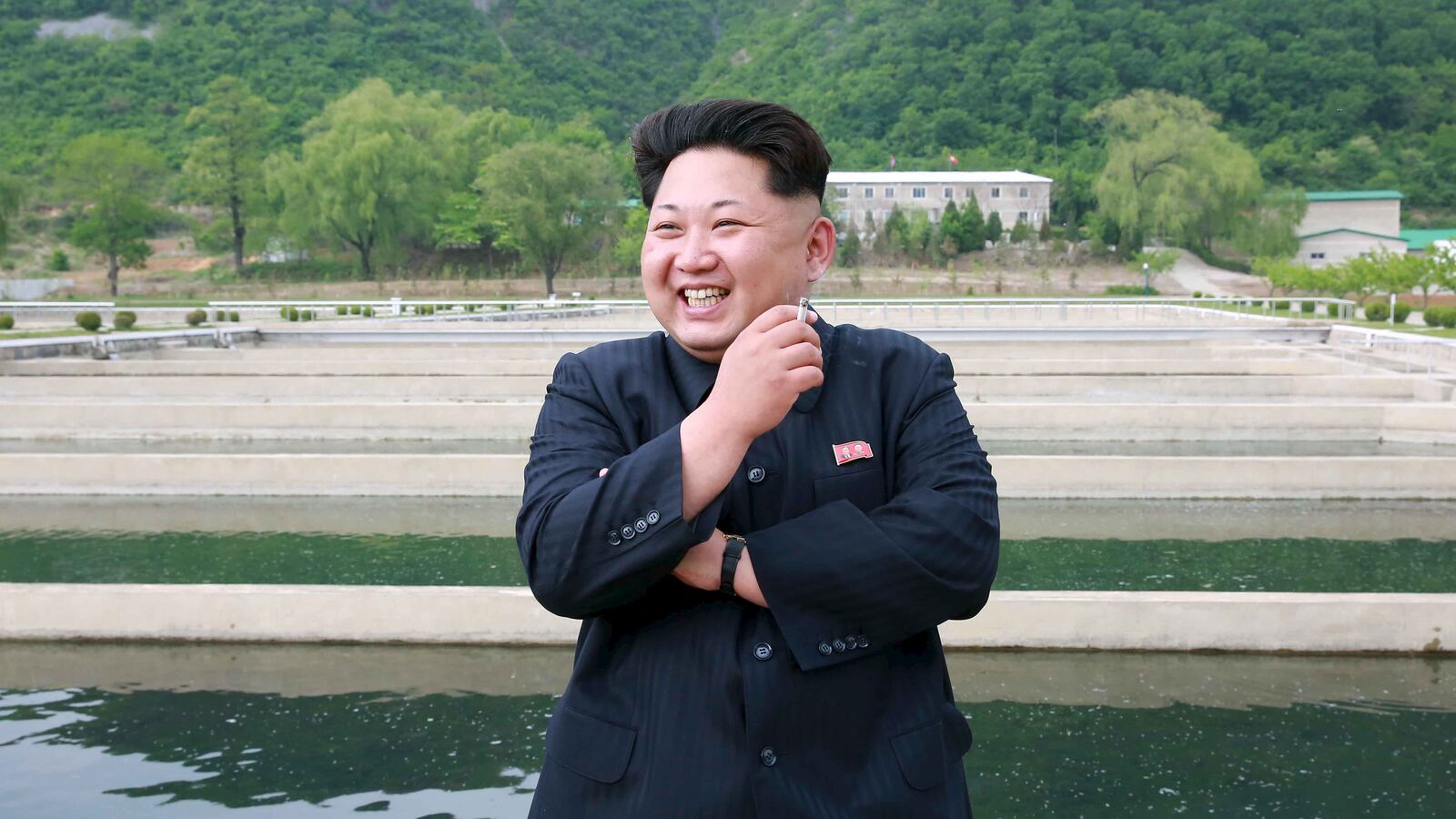HONG KONG — Is Donald Trump ready to ditch long-held America policy and engage in dialogue with Kim Jong Un, the truculent, nuke-armed youngster who happens to lead a destitute North Korea? Yes, because the Trumpster is oblivious to the lessons of decades of dealings with the cunning, manipulative, and dangerous Kim clan.
“I would speak to him, I would have no problem speaking to him,” the presumptive Republican presidential nominee told Reuters in an interview released Wednesday.
Trump, apparently talking off the cuff, has been making a lot of pronouncements that are destabilizing America’s friends while encouraging rivals and enemies. These specific comments are bound to upset allies South Korea and Japan, and certain to delight China, which increasingly sees the United States as an obstacle to its expansive regional ambitions.
Of course, this could be campaign rhetoric and nothing more. Barack Obama, in July 2007 during a debate with Hillary Clinton, famously said he would be willing, without pre-condition, to meet with the leaders of several hardline states, including North Korea, during his first year in office.
Obama, as president, has never met with either of his North Korean counterparts, Kim Jong Il or his son, Kim Jong Un. In fact, no sitting American president has ever met with a North Korean leader.
And there’s a reason. The dictators from the Kim family almost never keep their word to America. Obama, as president, found this out in 2012, when Kim Jong Un violated the so-called Leap Day deal just weeks after the U.S. and North Korea arrived at the pact.
The general approach of the Obama administration, since the breakdown of that arrangement, has been to insist, sensibly, that before starting a fresh round of dialogue, Pyongyang must honor its existing promises to end its nuclear weapons program.
In September 2005, during the Six-Party talks, the North consented to a Statement of Principles, in which it agreed to abandon its pursuit of nukes. Since then, it has detonated four such devices. Moreover, the North has tested long-range launchers in violation of international sanctions and the Leap Day deal.
Secretary of State John Kerry has thrown out hints in recent months that the U.S. would talk with Pyongyang over various matters, including a treaty to formally end the Korean War. His words, however, generally have been seen as part of an elaborate attempt to coax Beijing to enforce UN Security Council Resolution 2270, which imposes a relatively strict set of sanctions on Pyongyang.
China has been hoping to resume the Six-Party talks, which began in 2003 under Beijing’s sponsorship and broke down in 2009. These negotiations bring together China, North Korea, Russia, Japan, South Korea, and the U.S.
So why not chat with chubby Kim, especially if you’ve written books about the art of the deal and consider yourself a master of high-stakes, hard-ball drama on reality TV?
Here’s why: mere talk of Trump meeting with the belligerent North Korean rattles both Seoul and Tokyo at a time when, at Washington’s urging, they are now implementing tougher approaches to Pyongyang. Conversations with Kim at this moment, and even talk about talking one-on-one, would undermine efforts that now are beginning to work.
Trump’s Reuters interview doesn’t really come as a surprise. Throughout his campaign he has challenged the whole notion of American alliances. He’s made comments suggesting he might pull out of NATO, and he has threatened to abandon decades-old treaties with Japan and South Korea.
Such words are a source of glee for China, which very much wants America out of Asia.
On Tuesday, when he talked to Reuters, Trump repeated his notion of how to deal with Pyongyang. “I would put a lot of pressure on China because economically we have tremendous power over China,” he told the Reuters reporters.
That statement also represents a break from Washington’s established approach to Beijing on the issue. So far, both the Bush and Obama White Houses have treaded gingerly in dealing with China, hoping to convince Beijing to come around on North Korea, its only formal military ally.
Pressuring China on North Korea, if done consistently and with determination, could work, especially because at this moment China needs access to the American market as its economy falters. Yet there is no indication that Trump has considered actual strategies or tactics that could coerce Beijing, against its general inclinations, into implementing American policy.
Trump’s comments to Reuters, for instance, came as a surprise to Jeff Sessions, the Alabama Republican senator who chairs the candidate’s national security advisers.
It hasn’t gone unnoticed that Trump seems to have a weak spot for dictatorial types—notably Russia’s “bright and talented” Vladimir Putin)—while running down democratically elected Western leaders like British Prime Minister David Cameron and, by implication, just about every president and prime minister allied to the U.S.
“Let me get this straight,” said a statement from Hillary Clinton foreign policy adviser Jake Sullivan, “Donald Trump insults the leader of our closest ally, then turns around and says he’d love to talk to Kim Jong Un? His approach to foreign policy makes no sense for the rest of us.”
Or America’s allies for that matter.
There’s no sin in shaking up America’s North Korea policy, which over the course of decades has failed in crucial respects.
But unless a better alternative is at hand, and none has been presented by Trump, it would be the crime of the century to destroy Washington’s alliance architecture, which has kept a shaky peace in the region. Even now, months before the elections, throwing out policy pronouncements on a whim has the potential to make the situation in Asia even more tenuous, angering allies and delighting adversaries.
East Asia, Trump needs to know, is reality, not TV.





